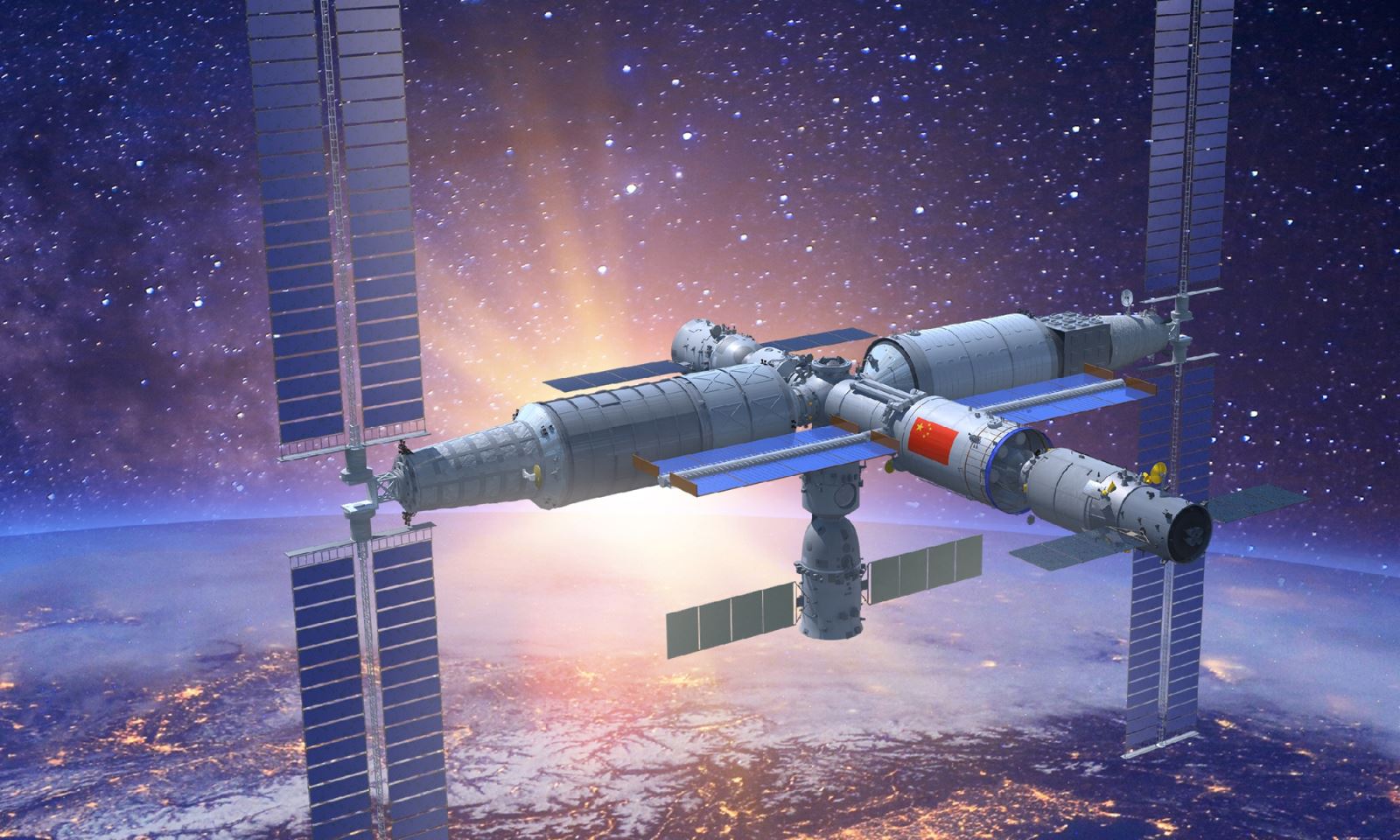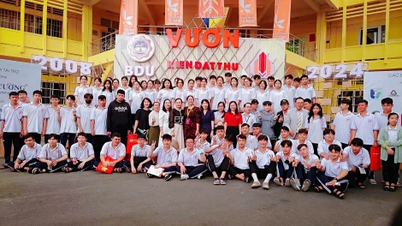The combination of space, AI, communications and quantum computing is turning China into a potential technology powerhouse. Photo: Globaltimes.cn
China recently restructured its Ministry of Science and Technology and established a Central Science and Technology Commission to promote domestic innovation, Thediplomat reported, as recent US actions aimed at limiting Beijing's access to important and emerging technologies.
According to Chinese President Xi Jinping, the development of key strategic technologies plays a crucial role in Beijing's goal of becoming a global power amid fierce competition. Specifically, by 2049, China aims to become a global leader in three strategic technologies: space, artificial intelligence (AI), communications and quantum computing.
About space
China aims to be a space power with its civilian programs. Beijing’s ambitious goals reflect this: China aims to establish a permanent base on the Moon by 2036, demonstrate high-level power generation through a space-based solar power project by 2050, launch a human mission to Mars between 2033 and 2049, and send an asteroid exploration mission by 2025.
China is also the only country with its own independent low Earth orbit (LEO) space station, Tiangong. China recently announced that it had successfully tested 100% regeneration of the oxygen supply on the Tiangong space station. This development will also help China advance its efforts to develop a regeneration system on the Moon, as it plans a crewed mission to the Moon after 2036 and is looking to exploit lunar resources such as Helium 3.
In addition, China also has its own independent BeiDou navigation system consisting of 35 satellites; nearly 250 military satellites for intelligence, surveillance, reconnaissance and targeting.
China is currently building a space observatory in Chongqing City to detect asteroids more than 10 million kilometers away. Called China Fuyan, this long-range system will contribute to China's planetary defense system as well as its space traffic management capabilities.
WHO
In 2021, China released a white paper on AI, highlighting the development of this field as an important factor driving economic development. Technologies supported by AI include social credit systems, facial recognition technology, self-driving cars, drones... China is expected to spend about 14.7 billion USD on AI this year, accounting for about 10% of total global investment. By 2026, the investment figure is estimated to reach about 26 billion USD.
The combination of artificial intelligence with military technologies could give China an additional advantage. Two prominent examples stand out: one in space and one underwater. China is working on integrating AI into CubeSats. This platform could be used to counter attacks on Chinese space assets. In addition to defense, such a platform could also be used for refueling and maintenance in orbit.
Artificial intelligence is also allowing Chinese-made unmanned underwater vehicles (UUVs) to identify and target enemy submarines. Exercises conducted by China in the Taiwan Strait saw UUVs navigate and attack a simulated submarine using AI technology.
AI has been identified as a key technology sector in China’s innovation strategy and “Made in China 2025”. China aims to become a global leader in AI by 2030.
Quantum communications and computing
China showed the world its leadership in quantum communications in 2017, when Chinese scientists beamed photons with encrypted information data from the world's first quantum satellite, Micius, launched in 2016.
In June 2020, in a paper published in the journal Nature, Pan Jianwei, an academician of the Chinese Academy of Sciences and executive vice president of the University of Science and Technology of China, introduced a secure method for quantum messaging using Micius, bringing China closer to its goal of being able to communicate without being attacked by hackers.
China is planning to develop a quantum communications network that will use encryption methods powered by quantum computers and is expected to be completed by 2038, according to Jianwei.
The combination of space, AI, communications and quantum computing is making China a potential technological powerhouse. At the 20th National Congress of the Communist Party of China, Xi Jinping declared that developing key strategic technologies would help China emerge as a leading player in international relations in the 21st century and would fuel new engines of growth.
This is a continuation of Beijing's strategic thinking, which identifies the development of science and technology as a key factor in helping China emerge as a great power and replace the United States.
Source: Tin Tuc Newspaper (According to thediplomat.com)
Source link



![[Photo] Prime Minister Pham Minh Chinh chairs the first meeting of the Central Steering Committee on housing policy and real estate market](https://vphoto.vietnam.vn/thumb/1200x675/vietnam/resource/IMAGE/2025/9/22/c0f42b88c6284975b4bcfcf5b17656e7)






















![[Photo] General Secretary To Lam presents the First Class Labor Medal to the Vietnam National Energy and Industry Group](https://vphoto.vietnam.vn/thumb/1200x675/vietnam/resource/IMAGE/2025/9/21/0ad2d50e1c274a55a3736500c5f262e5)



































































Comment (0)